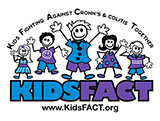What Is Ulcerative Colitis?

What Causes Ulcerative Colitis?

What are the Symptoms of Ulcerative Colitis?
About half of all UC patients experience mild symtpoms such as:
-
loose bowel movements
-
frequent or more urgent bowel movements
-
persistent diarrhea
-
abdominal pain or cramping
-
blood in the stool
-
decreased appetite
-
weight loss
-
low energy or fatigue

Treatment for Ulcerative Colitis

Other issues to consider with Ulcerative Colitis
-
There is not an increased risk for lactose intolerance in UC patients because lactose is broken down in the small intestine and UC primarily affects the colon. Avoiding dairy is not needed in UC patients normally.
-
Intestinal strictures, narrowed areas of the bowel, or partial bowel obstructions may benefit from a low fiber diet including: avoid raw fruits and vegetables, corn, beans, nuts, popcorn, raisins, whole grain products, bran products, and fiber supplements. This should only be implemented if a doctor has said you have strictures, partial bowel obstructions, or narrowing of the bowel.

